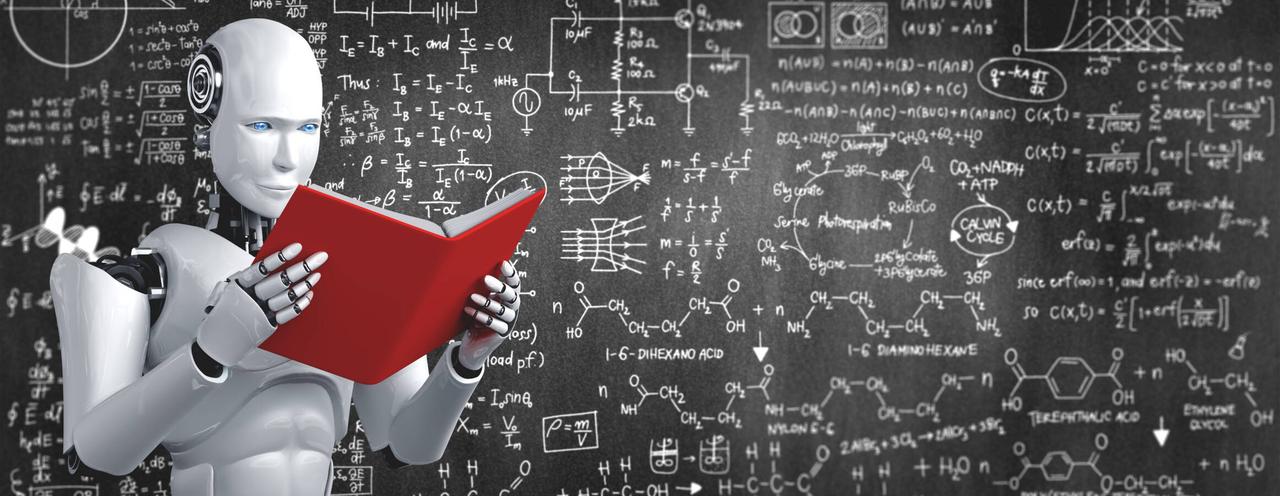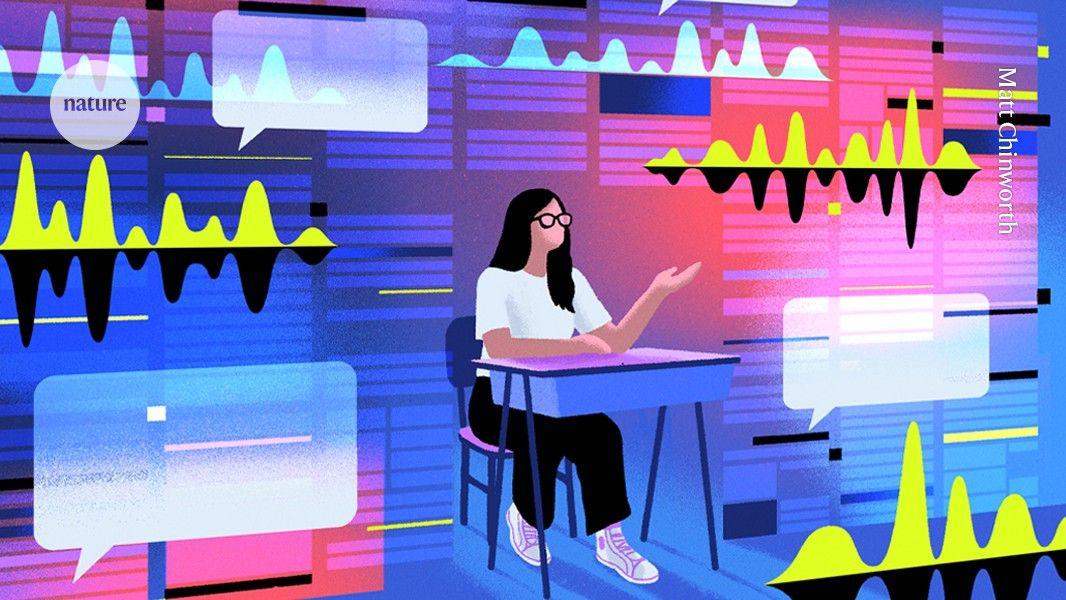UNESCO Emphasizes Human-Centered AI Integration in Global Education
2 Sources
2 Sources
[1]
Global Education Must Integrate AI, Centred On Humanity
His message highlighted the dual nature of technological advances such as Artificial Intelligence (AI), which offer immense potential - but also pose considerable risks. "Education is an essential building block for every person to reach their full potential, and for societies and economies to grow and flourish", Mr. Guterres said. The UN chief stressed that AI and other tech innovations can significantly aid students and teachers by providing wider access to information and advanced learning tools. "But the tremendous rewards are matched by some daunting risks. As AI-driven systems become more powerful, human intention and machine-driven impacts can easily misalign", he added. This year, the UN education and culture agency, UNESCO, is dedicating the Day to the opportunities and challenges of AI. Director-General Audrey Azoulay called for more investment in training both teachers and students so it can be used responsibly. "AI offers major opportunities, provided that its deployment in schools is guided by clear ethical principles. To reach its full potential, this technology must complement the human and social dimensions of learning, rather than replace them.", Mr. Azoulay said. Stressing that this year's day reminds us that unlocking the AI's potential "depends on keeping human agency - and human rights - at the heart of this rapidly evolving technology", the UN Secretary-General called for guarantees that all users have the right tools and knowledge to "use this technology smartly, safely and ethically". UNESCO's Competency Frameworks to support learners and teachers as they incorporate AI into their learning, and the recently adopted Global Digital Compact, are expected to help ensure humanity retains control over the development and governance of AI. Concluding his message, Mr. Guterres called for a commitment to "keeping humanity at the centre of education systems, everywhere". As AI becomes more integrated into education, countries remain divided on its use. According to UNESCO's latest data, in high-income nations, over two-thirds of secondary school students are already leveraging generative AI tools to support their schoolwork. However, a significant challenge remains with education professionals still lacking clear guidelines. A UNESCO survey conducted in May 2023, covering 450 educational institutions, revealed that only 10 per cent of schools and universities have an official framework for AI use. Simultaneously, an increasing number of countries are imposing restrictions on new technologies in the classroom. New data from UNESCO indicates that nearly 40 per cent of nations now have laws or policies banning mobile phones in schools, a notable rise from 24 per cent in July 2023. For more insights, listen to the UN Special Rapporteur on the Right to Education, Farida Shaheed, who recently discussed the role of AI in schools and the challenges it brings in an interview with UN News. The International Day reminds us that access to high-quality education is a human right that not only greatly benefits individuals but also uplifts entire communities. Millions of children, however, remain out of school due to a variety of factors including gender, location, social background or conflict. Despite decades of educational progress and international commitments, according to UNESCO's latest data, 251 million children and youth remain out of school worldwide. In a recent study, UNESCO reported that almost one in three learners has been physically attacked at least once during the school year and one in ten experiences cyberbullying. With too many children across the world experiencing violence in and around schools, the impacts can be devastating - affecting the well-being, education outcomes and quality of life of students. Watch youngsters here explain what they need to make schools safer.
[2]
2025 International Day Of Education; Theme: AI And Education: Preserving Human Agency In A World Of Automation
Artificial intelligence (AI) is rapidly weaving itself into the very fabric of everyday life. The education sector is no exception and stands on the precipice of profound transformation. As the Higher Education sector globally comes to terms with the impact of AI, the Pacific region faces unique challenges and opportunities when it comes to integrating AI and automation. In a region where people are key to preserving cultural values, the centrality of human agency remains paramount. As machines become an integral component of learning environments, the challenge lies in leveraging AI's capabilities while preserving and enhancing human agency. AI has the unparalleled potential to democratise education in the Pacific. Our region is home to a wide variety of cultures and languages that are deeply connected and dominated by the ocean and its surroundings. Consequently, AI must be developed and utilised with sensitivity to local contexts, ensuring that it supports, rather than diminishes, cultural identity and language preservation. Personalised learning platforms powered by AI can adapt to individual learners' needs, pace, and style, offering a tailored educational experience once reserved for elites through practices such as private tutoring. This technological shift promises to bridge the gap for learners in under-resourced settings, offering access to quality education worldwide. USP has significantly contributed to integrating artificial intelligence into education practices across the Pacific region. By establishing innovative programmes and collaborations, USP has facilitated the development of AI-driven tools and resources that enhance learning and teaching experiences since 1968. These initiatives include incorporating AI to personalise educational content, enabling adaptive learning pathways, and providing training to educators on effectively utilising AI technologies. AI presents opportunities for economic development through new industries and improved efficiencies. Education systems will need to adapt and prepare students for evolving job markets while ensuring that automation does not disproportionately impact already vulnerable communities. USP's efforts in research and development have supported the region in addressing educational challenges specific to the Pacific context, fostering a more inclusive and effective learning environment for students from diverse backgrounds. Through these advancements, the University is playing a pivotal role in preparing the Pacific workforce for future technological changes and opportunities. However, with these advantages and opportunities come significant concerns and challenges. The most pressing is the potential erosion of human agency. As algorithms increasingly influence what students learn and how they learn it, there is a risk that learners may cede control over their educational journeys to automated systems. This could lead to a homogenisation of curricula dictated by algorithmic efficiencies rather than the diverse, critical thinking skills essential for thriving in a complex world. Furthermore, there remains a concern about data privacy and the assurances needed to protect students' personal information. As educational platforms gather and analyse vast amounts of data to optimise learning experiences, questions arise about who controls this data and how it is used. Transparency and accountability are paramount in ensuring that technological advancement does not come at the cost of individual autonomy. To preserve human agency, educators and policymakers must play a proactive role. At USP, our researchers are actively working on some critical issues. These include the design and deployment of AI systems in education that must be guided by inclusive dialogues involving educators, students, and parents, ensuring that diverse perspectives shape how these technologies are used. Secondly, curricula should be developed to not only include technical literacy but also skills such as critical thinking, creativity, and ethical reasoning -- skills that remain uniquely human and are less susceptible to automation. Moreover, an ongoing ethical oversight mechanism must be established to monitor AI systems, ensuring they operate transparently and equitably. By fostering an environment where humans and machines collaborate rather than compete, education can nurture the unique abilities of each learner. For our region, careful planning, cultural sensitivity, and ethical considerations are critical in maintaining human agency and ensuring that these technologies serve the needs of all our diverse communities. AI presents a revolutionary opportunity to enhance education, yet it is crucial to maintain a steadfast focus on preserving human agency. By encouraging innovation while upholding ethical standards and inclusiveness, we can ensure that the future of education empowers individuals, respects their autonomy, and prepares them to meaningfully engage in an automated world. As we stand at this crossroads, the choices we make will shape not just the learners of today, but the architects of tomorrow's society.
Share
Share
Copy Link
UNESCO highlights the importance of integrating AI in education while preserving human agency and cultural sensitivity, especially in regions like the Pacific.

UNESCO Calls for Human-Centered AI Integration in Education
On the International Day of Education, UNESCO has emphasized the need for a balanced approach to integrating Artificial Intelligence (AI) in global education systems. The organization stresses the importance of preserving human agency and cultural sensitivity while harnessing the potential of AI to enhance learning experiences
1
.Opportunities and Challenges of AI in Education
UN Secretary-General António Guterres highlighted the dual nature of AI in education, noting its immense potential to aid students and teachers by providing wider access to information and advanced learning tools. However, he also cautioned about the risks associated with powerful AI-driven systems, emphasizing the need to align human intention with machine-driven impacts
1
.UNESCO Director-General Audrey Azoulay called for increased investment in training both teachers and students to use AI responsibly. She stressed that AI should complement the human and social dimensions of learning rather than replace them
1
.Preserving Human Agency and Cultural Sensitivity
In regions like the Pacific, where cultural values and diversity are paramount, the integration of AI in education presents unique challenges and opportunities. The University of the South Pacific (USP) has been at the forefront of developing AI-driven tools and resources that enhance learning experiences while respecting local contexts
2
.Current State of AI in Education
UNESCO's latest data reveals a significant divide in AI adoption:
- In high-income nations, over two-thirds of secondary school students are already using generative AI tools for schoolwork.
- Only 10% of schools and universities have an official framework for AI use.
- Nearly 40% of countries now have laws or policies banning mobile phones in schools, up from 24% in July 2023
1
.
Challenges and Ethical Considerations
As AI becomes more integrated into education, several challenges emerge:
- Potential erosion of human agency in learning processes.
- Data privacy concerns and the need to protect students' personal information.
- Risk of homogenization of curricula dictated by algorithmic efficiencies
2
.
Related Stories
Recommendations for Responsible AI Integration
To address these challenges, experts recommend:
- Inclusive dialogues involving educators, students, and parents in the design and deployment of AI systems.
- Developing curricula that focus on uniquely human skills such as critical thinking, creativity, and ethical reasoning.
- Establishing ongoing ethical oversight mechanisms to monitor AI systems
2
.
The Way Forward
As the education sector globally grapples with the impact of AI, the focus remains on leveraging its capabilities while preserving human agency. UNESCO's Competency Frameworks and the recently adopted Global Digital Compact are expected to help ensure humanity retains control over the development and governance of AI in education
1
.By fostering an environment where humans and machines collaborate rather than compete, education can nurture the unique abilities of each learner while preparing them for a future increasingly shaped by AI and automation
2
.References
Summarized by
Navi
Related Stories
AI Adoption in Education Slows, Becomes More Intentional: Quizlet Report
15 Jul 2024

AI in Education: Reshaping Learning and Assessment in the Age of ChatGPT
24 Apr 2025•Technology

Universities scramble to rethink exams as 92% of UK students now rely on AI for coursework
03 Dec 2025•Entertainment and Society

Recent Highlights
1
ByteDance's Seedance 2.0 AI video generator triggers copyright infringement battle with Hollywood
Policy and Regulation

2
Demis Hassabis predicts AGI in 5-8 years, sees new golden era transforming medicine and science
Technology

3
Nvidia and Meta forge massive chip deal as computing power demands reshape AI infrastructure
Technology





